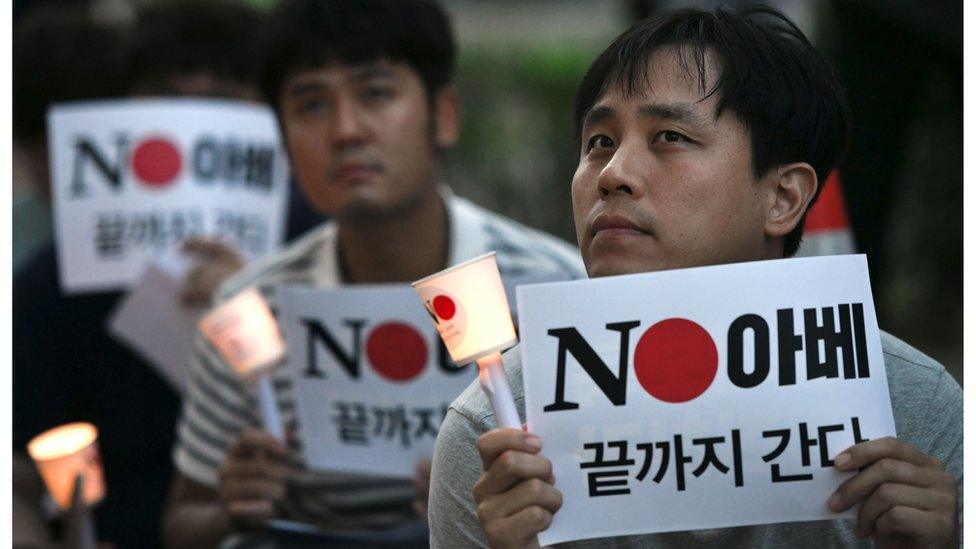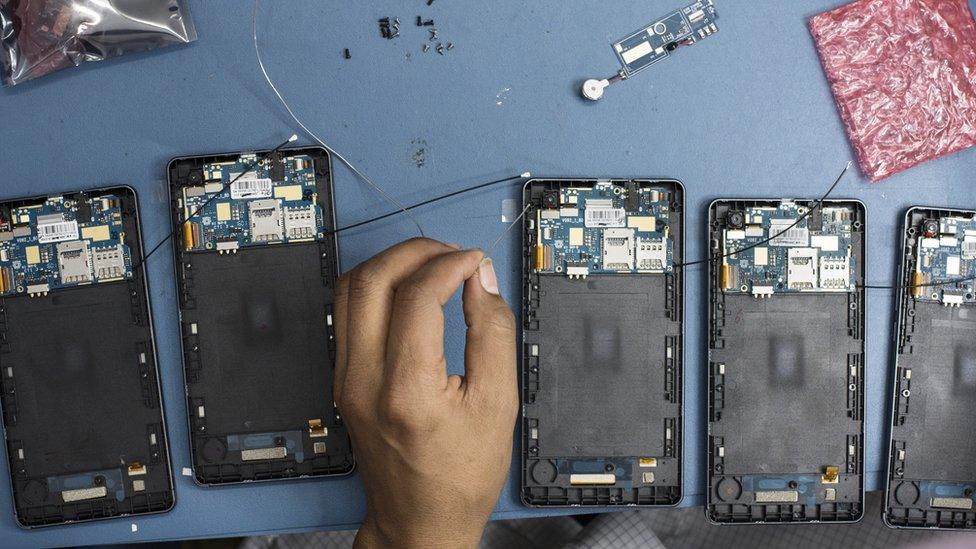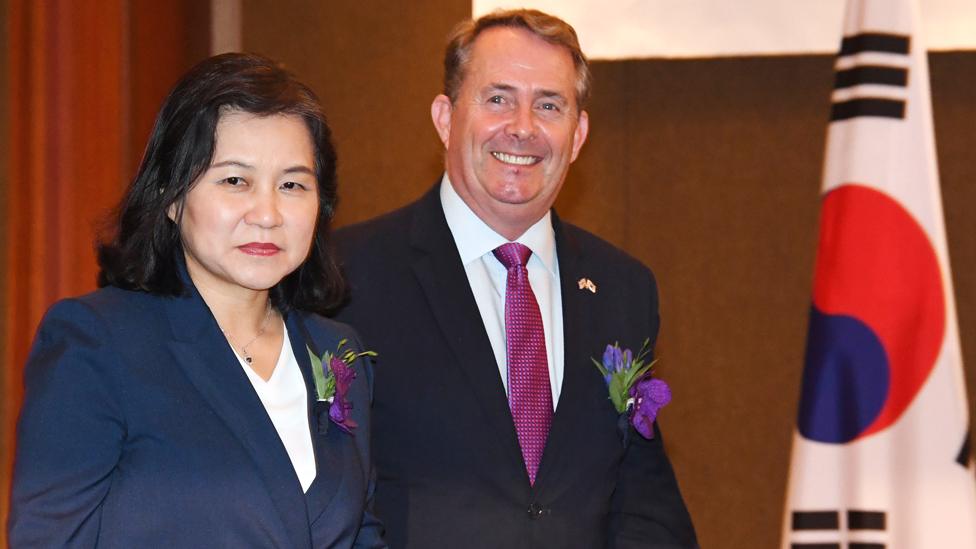Japan to strike South Korea off trusted export list as rift deepens
- Published
A man smashed up his Japanese-made car in protest at the trade dispute
Japan will remove South Korea from its list of trusted trade partners, deepening a bitter row between the two countries.
The decision to strike South Korea off its so-called "white list" puts fresh trading restrictions on the country.
South Korean President Moon Jae-in on Friday condemned Tokyo's "selfish" act and threatened possible retaliation.
The trade spat, which includes curbs on tech supplies, has sparked fears over risks to the global electronics sector.
The escalating dispute has been fuelled by diplomatic tensions over compensation for wartime labour.
Japan has said the measures are based on national security concerns, and also address Seoul's inadequate export controls.
During a televised cabinet meeting, Mr Moon said Tokyo's "selfish act will inflict tremendous damage on the world economy by disrupting global supply chains".
"Responsibility for what is going to happen next also lies squarely with the Japanese government.
"Though Japan is an economic powerhouse, if it were to damage our economy, we likewise have countermeasures to implement in kind," the president said.
South Korea's ruling Democratic Party also described the moves as "all out declaration of economic war".
What will be the impact?
Tokyo is due to remove Seoul from the white list later this month. After that, Japanese exporters must apply for clearance to export a wide range of goods to South Korea.
It is the first country to be removed from Japan's list of trusted trading partners, which currently has 27 nations, including Germany, the UK and the US.
The decision to strip Seoul of its preferred trade status comes one month after Japan tightened rules on the export of materials crucial for South Korean tech manufacturers.
Those restrictions, on products needed to make display panels and memory chips, have worried Seoul over the risks to its already slowing economy.


If you start seeing a price increase for your smartphone, your laptop or even your television, this trade row could be to blame. South Korean tech firms supply over half of the world's semiconductors and display screens for these devices.
Japan's decision to strip Seoul of its fast-track trade status could affect global supply. Millions of South Koreans are boycotting Japanese goods over the dispute, and several protests have been held throughout the country.
A South Korean man set himself on fire yesterday in the centre of Seoul. Supermarket shelves are being emptied of Japanese goods. Defiant demonstrators post films of themselves destroying their own Japanese cars. This is just the start.
But the problem is political too. The US relies on Japan and South Korea to provide a united front as it tries to apply maximum pressure on North Korea and combat a deepening alliance between Russia and China. The fear is that this trade row will escalate leading to a more fractured and less secure east Asian partnership.

How did the trade row begin?

South Korean protesters hold signs saying "No Abe" in response to Tokyo's trade curbs
The two countries share a complicated history that includes Japanese colonial rule of Korea from 1910 until the defeat of Japan in 1945.
Last year, South Korean court rulings ordering Japanese firms to pay compensation to Koreans over forced wartime labour inflamed long-running tensions.
The decisions drew condemnation from Japan, which argues the dispute was settled in 1965 when diplomatic ties were normalised between the neighbouring countries.
Mitsubishi Heavy, one of the firms involved, has reportedly refused to comply with the court order, while two other companies have had their assets seized in South Korea.
- Published23 July 2019

- Published10 June 2019
